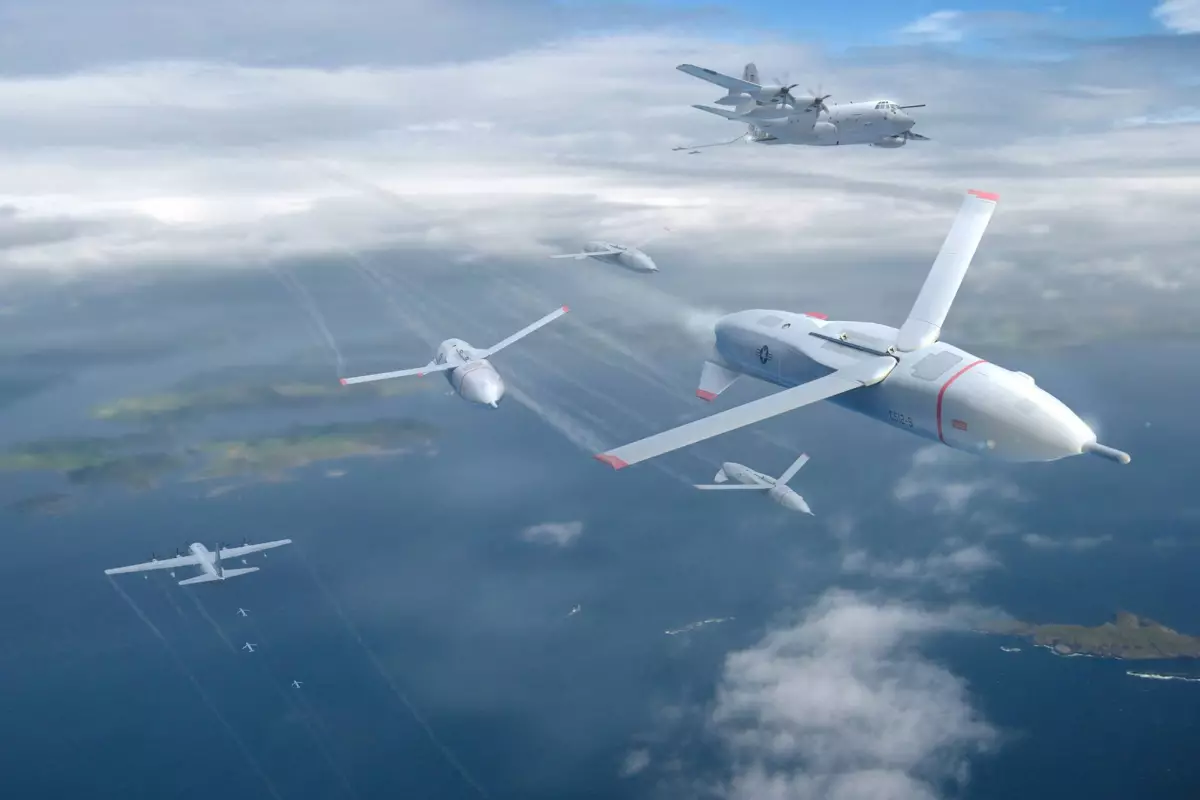The US Deputy Secretary of Defense has officially kicked off the AI drone wars, announcing a radical "Replicator" plan to put many thousands of intelligent autonomous war drones into service within 18-24 months, to deter a Chinese invasion of Taiwan.
"Replicator is meant to help us overcome the PRC’s biggest advantage, which is mass," said Deputy Secretary of Defense Kathleen Hicks in a keynote speech earlier this week. "More ships. More missiles. More people. Before Russia invaded Ukraine again in February, they seemed to have that advantage too."
America, she continued, doesn't "use our people as cannon fodder like some competitors do ... We out-match adversaries by out-thinking, out-strategizing, and out-maneuvering them ... Our real comparitive advantage ... is the innovation and spirit of our people."
Not the ~$900 billion annual budget, then, representing a solid 40% of the entire world's military spending and more than double the budgets of China and Russia combined? Righto then!
Either way, the Replicator initiative is designed to "counter the [People's Liberation Army]'s mass with mass of our own, but ours will be harder to plan for, harder to hit, harder to beat ... We're going to create a new state of the art ... Leveraging attritable, autonomous systems in all domains, which are less expensive, put fewer people in the line of fire, and can be changed, updated, or improved with substantially shorter lead times."
To translate out of militarese, the US is committing to put multiple thousands of autonomous drones in the field before September 2025. There will be flying ones, driving ones, marine ones – probably submarines – and potentially even some in orbit. They'll be capable of swarming, or of operating completely solo where communications are difficult or impossible. And they'll be "attritable," in that they'll be treated as expendable assets.
The autonomous robots produced by the Replicator initiative, Hicks says, will be "developed and fielded in line with our responsible and ethical use of AI and autonomous systems."
Mind you, as the Congressional Research Service pointed out in May this year, there's actually no agreed-upon definition of what constitutes a Lethal Autonomous Weapons System (LAWS), and the DoD's ethical guidance on such devices is pretty flexible, allowing pretty much anything a commander or operator might decide – up to and including the capability for these things to pick their own targets and shoot, bomb or kamikaze them, provided the war-bot has been designed and tested properly.
The all-but-stated intention here is to ward off a Chinese military drive to reclaim Taiwan – a threat that has loomed for decades.
"We must ensure the [People's Republic of China] leadership wakes up every day," said Hicks, "considers the risks of aggression, and concludes, 'today is not the day' – and not just today, but every day, between now and 2027, now and 2035, now and 2049, and beyond."
"America still benefits from platforms that are large, exquisite, expensive, and few," Hicks added. "But Replicator will galvanize progress in the too-slow shift of U.S. military innovation to leverage platforms that are small, smart, cheap, and many."
It's hard to say whether going into an electronics manufacturing vendetta against the world's biggest electronics manufacturer will prove clever, but this is the way warfare must inevitably go. One thing's for sure: Replicator will be expensive, especially once the entire initiative itself gets replicated – which is a stated goal.
"We’ll also aim to replicate and inculcate how we will achieve this goal," said Hicks, "so we can scale what’s relevant in the future again and again and again. Easier said than done? You bet. But we’re gonna do it."
Source: US Department of Defense





